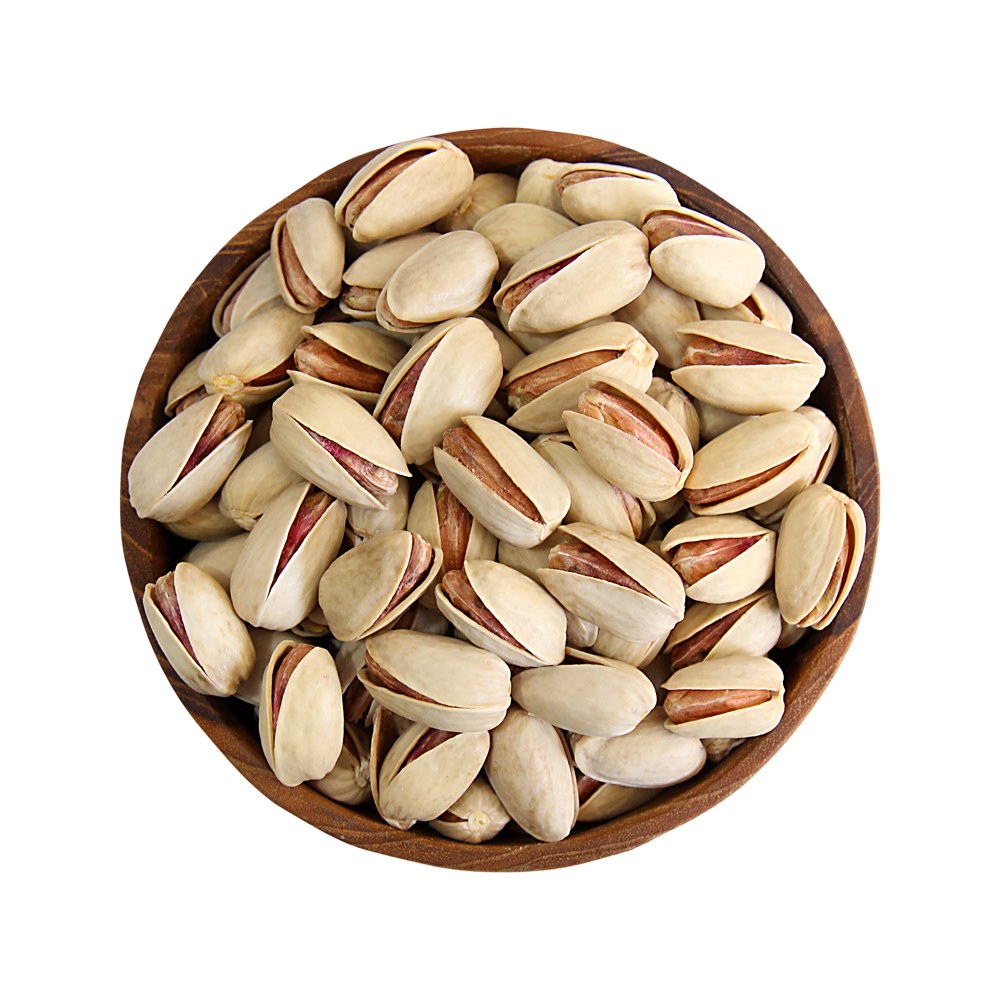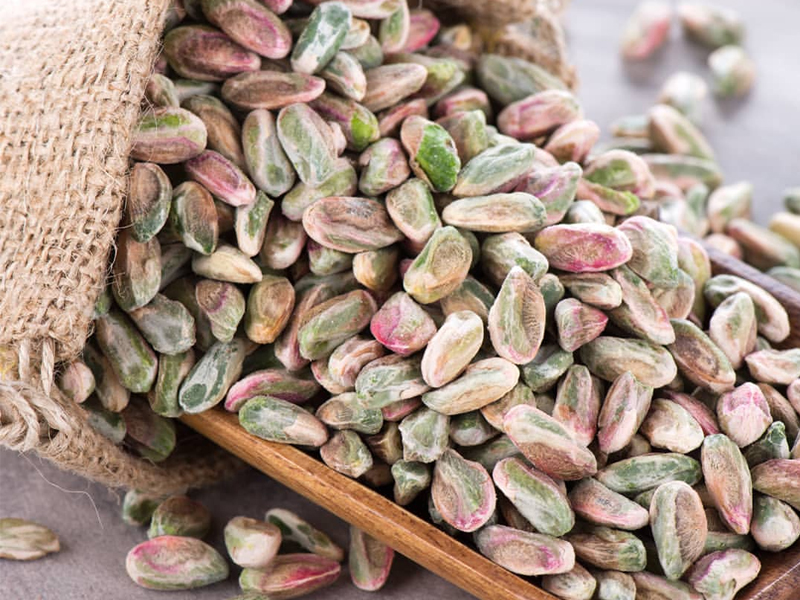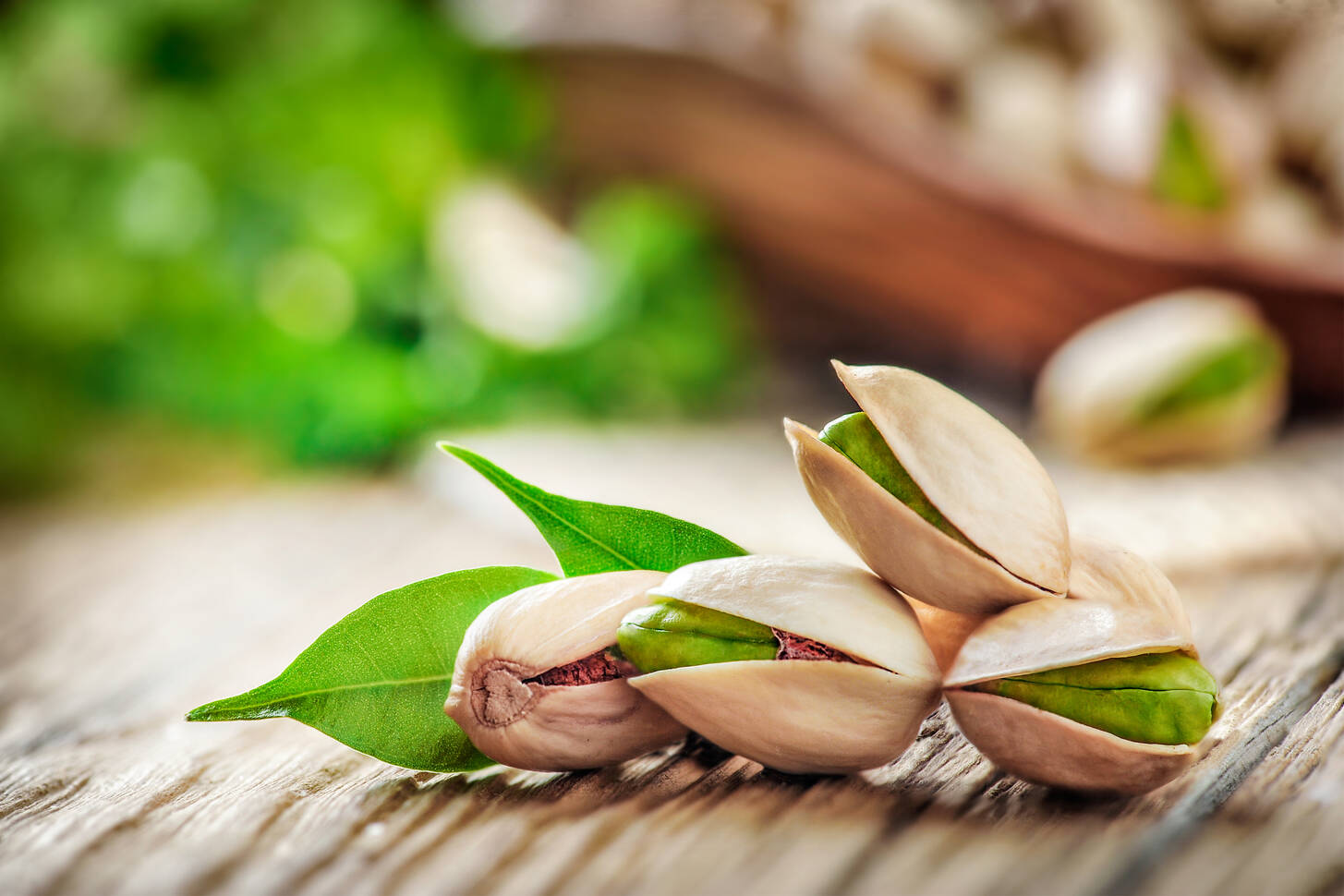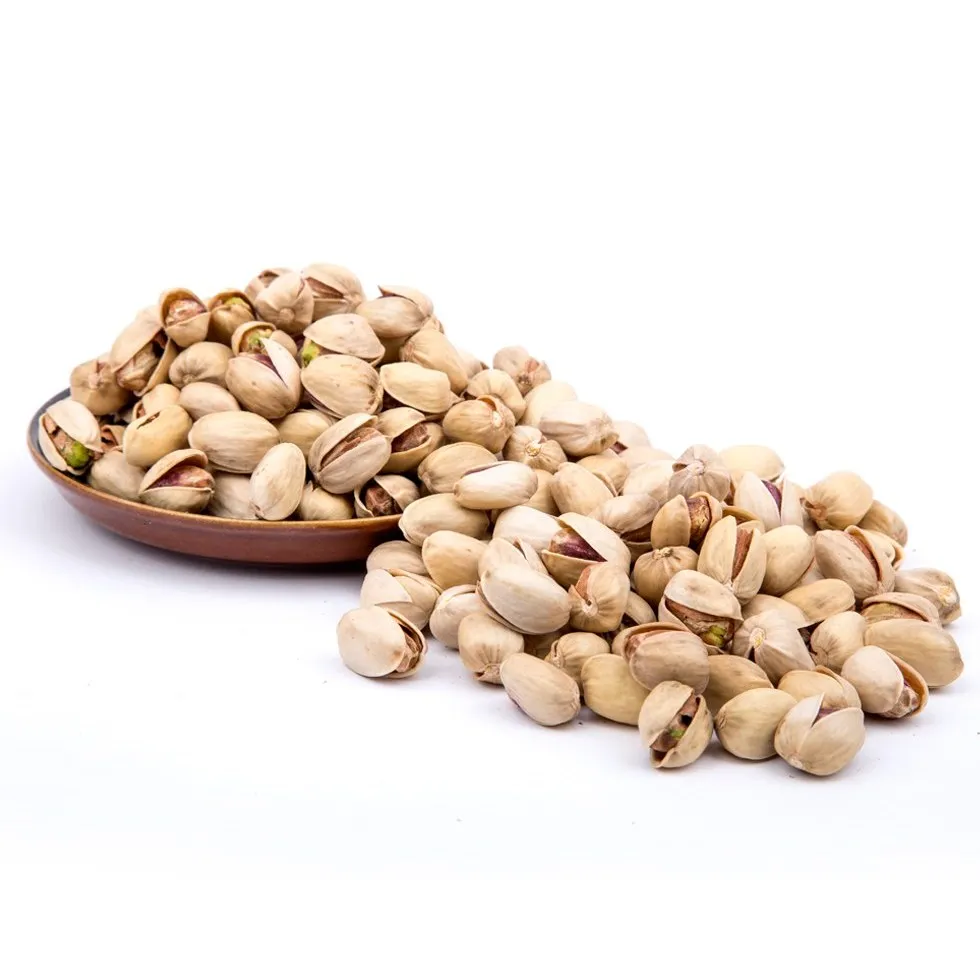Pistachios, not only are they delicious, but they also offer a variety of health benefits. With their distinctive flavor and vibrant green hue, these nuts have gained popularity as a nutritious snack option. Apart from being rich in essential nutrients, pistachios are also known for their caloric content. In this article, we will delve into the nutritional profile of pistachio kernels, with a specific focus on their calorie content and associated health benefits.
1. Pistachio Kernels: A Nutrient Powerhouse:
Pistachio kernels are small, edible seeds derived from the fruit of the Pistacia vera tree. They are a rich source of macronutrients, vitamins, minerals, and antioxidants. Although they are high in calories, the majority of these calories come from the healthy fats present in pistachios.
2. Calorie Content in Pistachio Kernels:
Pistachio kernels are a calorie-dense food, meaning they provide a relatively large number of calories per serving. On average, a 1-ounce (28-gram) serving of pistachio kernels contains around 160-170 calories. However, it is important to note that individual calorie counts can vary slightly depending on factors such as size, quality, and method of processing.
3. Healthy Fats in Pistachio Kernels:
The majority of calories in pistachio kernels come from fats, with each serving containing approximately 13 grams of fat. What sets pistachios apart from other nuts is the composition of their fats. Roughly 90% of the fats in pistachios are unsaturated fats, which are heart-healthy and beneficial for overall well-being. These healthy fats, including monounsaturated and polyunsaturated fats, can help lower bad cholesterol levels (LDL) and reduce the risk of heart disease when consumed in moderation.
4. Pistachios and Weight Management:
Contrary to popular belief, regular consumption of pistachio kernels may not lead to weight gain. Emerging evidence suggests that the high fiber content, along with the healthy fats and protein in pistachios, can promote feelings of fullness and reduce appetite. This can potentially aid in weight management and prevent overconsumption of high-calorie foods.
5. Protein and Pistachio Kernels:

Protein is an essential macronutrient required for various physiological functions. Pistachio kernels provide an adequate amount of protein, with a 1-ounce serving containing around 6 grams. Protein is vital for tissue repair, muscle synthesis, and satiety. Incorporating pistachios into a balanced diet can contribute to meeting daily protein requirements.
6. Micronutrients in Pistachio Kernels:
Apart from healthy fats and protein, pistachio kernels also contain an array of essential vitamins and minerals. These include vitamin B6, thiamine, phosphorus, copper, manganese, and potassium. These micronutrients play crucial roles in various bodily functions such as energy production, bone health, immune function, and more.
7. Antioxidants and Pistachio Kernels:
Pistachios are a rich source of antioxidants, including carotenoids and polyphenolic compounds. Antioxidants help combat oxidative stress and protect against free radical damage in the body. Studies have highlighted the potential health benefits of consuming antioxidant-rich foods, such as reducing the risk of chronic diseases like cardiovascular disease, certain types of cancer, and age-related macular degeneration.
8. Pistachio Kernels and Blood Sugar Control:
The composition of pistachio kernels, including their healthy fats, fiber content, and antioxidants, may also contribute to regulating blood sugar levels. Research suggests that including pistachios in a meal can help lower the postprandial rise in blood sugar levels. This can be particularly beneficial for individuals with diabetes or those aiming to maintain stable blood sugar levels.
Conclusion:
Pistachio kernels, although calorie-dense, provide a multitude of health benefits. While their caloric content may initially raise concerns, it is essential to assess the overall nutritional profile and the role of healthy fats, proteins, fiber, and antioxidants in promoting overall health. With their unique combination of nutrients, regular, moderate consumption of pistachio kernels can be a valuable addition to a balanced diet, supporting weight management, heart health, blood sugar control, and providing essential micronutrients.Title: Unveiling the Nutritional Profile of Pistachio Kernels: Understanding Calories and Health Benefits
Introduction:
Pistachios, not only are they delicious, but they also offer a variety of health benefits. With their distinctive flavor and vibrant green hue, these nuts have gained popularity as a nutritious snack option. Apart from being rich in essential nutrients, pistachios are also known for their caloric content. In this article, we will delve into the nutritional profile of pistachio kernels, with a specific focus on their calorie content and associated health benefits.

1. Pistachio Kernels: A Nutrient Powerhouse:
Pistachio kernels are small, edible seeds derived from the fruit of the Pistacia vera tree. They are a rich source of macronutrients, vitamins, minerals, and antioxidants. Although they are high in calories, the majority of these calories come from the healthy fats present in pistachios.
2. Calorie Content in Pistachio Kernels:
Pistachio kernels are a calorie-dense food, meaning they provide a relatively large number of calories per serving. On average, a 1-ounce (28-gram) serving of pistachio kernels contains around 160-170 calories. However, it is important to note that individual calorie counts can vary slightly depending on factors such as size, quality, and method of processing.
3. Healthy Fats in Pistachio Kernels:
The majority of calories in pistachio kernels come from fats, with each serving containing approximately 13 grams of fat. What sets pistachios apart from other nuts is the composition of their fats. Roughly 90% of the fats in pistachios are unsaturated fats, which are heart-healthy and beneficial for overall well-being. These healthy fats, including monounsaturated and polyunsaturated fats, can help lower bad cholesterol levels (LDL) and reduce the risk of heart disease when consumed in moderation.
4. Pistachios and Weight Management:
Contrary to popular belief, regular consumption of pistachio kernels may not lead to weight gain. Emerging evidence suggests that the high fiber content, along with the healthy fats and protein in pistachios, can promote feelings of fullness and reduce appetite. This can potentially aid in weight management and prevent overconsumption of high-calorie foods.
5. Protein and Pistachio Kernels:
Protein is an essential macronutrient required for various physiological functions. Pistachio kernels provide an adequate amount of protein, with a 1-ounce serving containing around 6 grams. Protein is vital for tissue repair, muscle synthesis, and satiety. Incorporating pistachios into a balanced diet can contribute to meeting daily protein requirements.
6. Micronutrients in Pistachio Kernels:

Apart from healthy fats and protein, pistachio kernels also contain an array of essential vitamins and minerals. These include vitamin B6, thiamine, phosphorus, copper, manganese, and potassium. These micronutrients play crucial roles in various bodily functions such as energy production, bone health, immune function, and more.
7. Antioxidants and Pistachio Kernels:
Pistachios are a rich source of antioxidants, including carotenoids and polyphenolic compounds. Antioxidants help combat oxidative stress and protect against free radical damage in the body. Studies have highlighted the potential health benefits of consuming antioxidant-rich foods, such as reducing the risk of chronic diseases like cardiovascular disease, certain types of cancer, and age-related macular degeneration.
8. Pistachio Kernels and Blood Sugar Control:
The composition of pistachio kernels, including their healthy fats, fiber content, and antioxidants, may also contribute to regulating blood sugar levels. Research suggests that including pistachios in a meal can help lower the postprandial rise in blood sugar levels. This can be particularly beneficial for individuals with diabetes or those aiming to maintain stable blood sugar levels.
9. Pistachios for Eye Health:
Pistachio kernels contain antioxidant compounds such as lutein and zeaxanthin, which are known to support eye health. These antioxidants play a protective role against age-related macular degeneration and may help reduce the risk of cataracts. Regular consumption of pistachios, along with a balanced diet rich in fruits and vegetables, can contribute to maintaining good vision.
10. Pistachios and Digestive Health:
The fiber content in pistachio kernels supports healthy digestion by promoting regular bowel movements and preventing constipation. Additionally, the prebiotic properties of pistachios serve as food for beneficial gut bacteria, promoting a healthy gut microbiome. Including pistachios as part of a varied diet can support overall digestive health and contribute to a well-functioning gastrointestinal system.
11. Incorporating Pistachio Kernels into a Healthy Diet:
To enjoy the health benefits of pistachio kernels while managing calorie intake, it’s essential to consume them in moderation. Adding pistachios to salads, yogurt, or oatmeal can enhance the nutritional value of these meals. They can also be enjoyed as a standalone snack, replacing unhealthy processed snacks. However, portion control is crucial due to their calorie density.

12. Conclusion:
Pistachio kernels are not only a tasty and versatile snack, but they also provide a wide range of health benefits. Although they are calorie-dense, the healthy fats, protein, fiber, and array of essential nutrients they contain make them a valuable addition to a balanced diet. Regular, moderate consumption of pistachio kernels can support weight management, heart health, blood sugar control, eye health, and digestive health. So go ahead and savor the delectable crunch of pistachios, knowing that they can contribute to your overall well-being.










